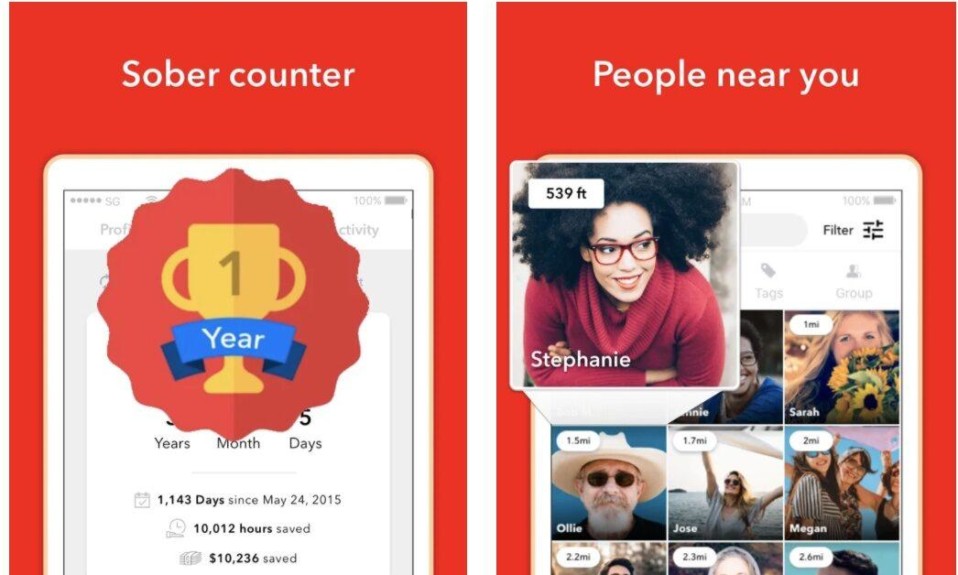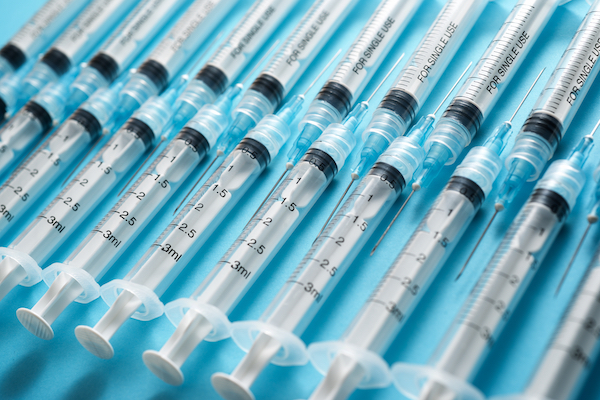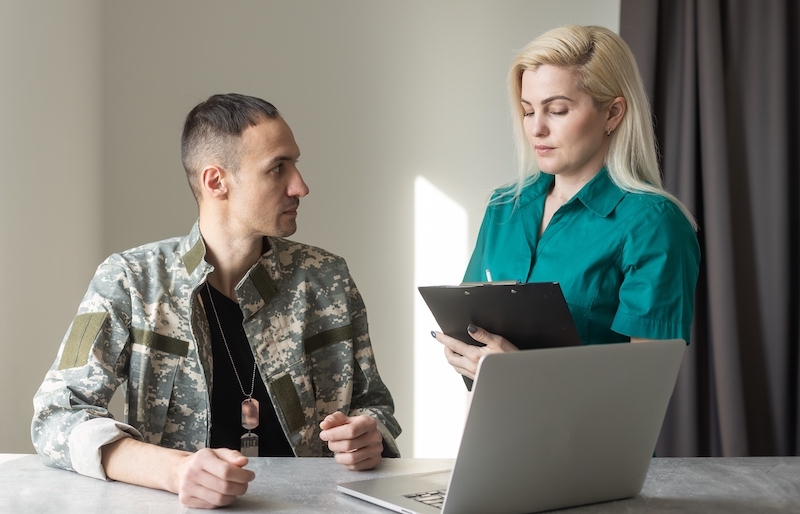Members can access the app 24/7 for community and peer support and certified addiction recovery coaching
By Jason Langendorf
December 15, 2020A mantra has become popular in the treatment field: The opposite of addiction isn’t sobriety—but connection. Whether that’s semantically true isn’t the point. What treatment experts do know is that humans are social animals who thrive on community and suffer in isolation, and that people with addiction respond keenly to either.
This insight prompted Beau Mann to create Sober Grid, a mobile app that allows people to give or get addiction recovery support. Mann, the CEO and founder of Boston-based Sober Grid, understood from his own recovery journey just how vital a network of support can be in improving outcomes and helping reduce recidivism, or relapses, for people with addiction. “I’m a patient-entrepreneur,” Mann says. “I’m a person living with substance use disorder [SUD]. I’ve had other companies, and I started Sober Grid so that I could bring a service to the market to other people like me, who have the same problems that I have.”
Other digital health companies…are very clinical focused. …We thought, Let’s mirror the user experience and user interface that people are already familiar with. They’re very familiar with how to use Facebook and Instagram, and they’re familiar with the concept of being socially connected.”—Beau Mann, CEO and founder, SoberGrid
“Like Other Social Networks”
With more than 300,000 members across 170 countries—what Mann calls the world’s largest online community of people with SUD—Sober Grid is designed to be immediately familiar for the first-time user. That’s a big part of its appeal, and it’s no accident, says Mann. The app shares a fair amount of DNA with other social media channels, a deliberate choice made by the team to help users warm up to the Sober Grid experience right away.
“Other digital health companies didn’t take that approach,” Mann says. “They are very clinical focused, with a design that’s more clinical, whereas we adopted this user connectivity. We thought, Let’s mirror the user experience and user interface that people are already familiar with. They’re very familiar with how to use Facebook and Instagram, and they’re familiar with the concept of being socially connected.”
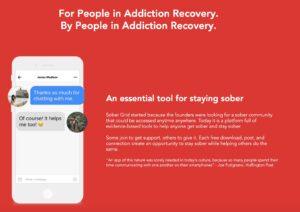
In 2016, according to the Substance Abuse and Mental Health Services Administration (SAMHSA), fewer than one out of every five people 12 or older who needed substance abuse treatment received it. That left more than 17 million people with SUD lacking care. One of the strongest factors indicated in that treatment gap is stigma, an addiction-recovery sticking point that Sober Grid is designed to help overcome.
The app features an interface that, like many other social media platforms, enables members to create a profile, post messages, photos, videos and the like or comment on other member posts. It offers a geo-tracking option that allows users to see other members nearby. This sort of community-building, especially during a pandemic, can help keep a person with SUD engaged with others in a meaningful way. But what differentiates Sober Grid are its mindfulness components—Daily Quests, daily inspiration and a tracker for your sobriety journey, plus easily accessible, 24/7 support from fellow members or recovery coaches.
Peer Coaching and Telehealth
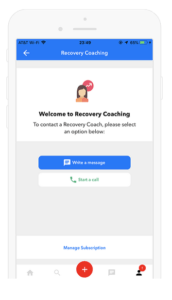
In 2018, Sober Grid purchased Ascent, an evidence-based service that offers addiction recovery coaching from state-trained and -certified peers. Members can choose from a diverse group of peer coaches with shared recovery experience and the tools to offer non-clinical support at a moment’s notice—a telehealth option that can provide much-needed immediate help in the event of a behavioral health crisis.
“Isolation is shown to be a contributing factor to relapse rates and overdose rates, [and] decreased health outcomes in the SUD population,” Mann says. “So if you had a tool like Sober Grid, that breaks down the isolation and bridges to a community 24/7, wherever you are in the world. I think that is a huge step forward in the recovery and therapeutic process.”
Future AI Capabilities
Mann and his team aren’t finished building. SoberGrid is currently in phase two of trials, testing predictive AI technology that analyzes user behaviors on the app and detects when a member is likely experiencing a crisis, which would signal a recovery coach to reach out to that member directly. The company is also overseeing other initiatives, including a program in Louisiana that supports released prisoners in their re-entry and recovery—undertakings whose success, to a great extent, depend on one another.
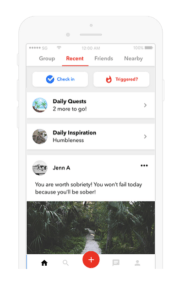
Says Sober Grid executive administrator Wendy Warrington: “Because many of our coaches have that lived experience, they can help and have conversations that may not necessarily be comfortable with a counselor or a therapist or probation officer. Our coaches can also help them with advocating for their own needs. All of those components, and putting in and developing a recovery plan for them, help hold them accountable and stay on track.”
Sober Grid is a free app, except for the peer recovery coaching features, which typically cost $99 per month after a two-week free trial. But thanks to a grant from the Ohio Opiate Response Continuum, serving members of the African American, Latino, Asian and other communities, qualifying members can access the service through Sept. 28, 2021, free of charge.


